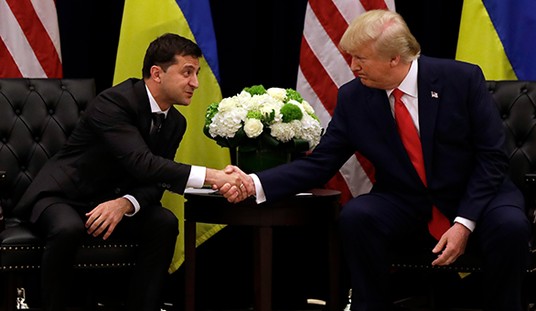Egypt-Libya: Egyptian combat aircraft executed two waves of attacks against targets in Libya, identified as belonging to the Islamic State of Iraq and the Levant (ISIL) and its affiliates. The Egyptian Air Force announced that it had hit ISIL targets in the city of Darnah. Egypt said the attacks hit militant camps, training sites and weapons storage areas.
ISIL responded by capturing more Egyptian Coptic Christian workers.
The attacks were retaliation for the murder by decapitation of 21 Egyptian Christian migrant workers. The victims, 13 from the same village, went to Libya seeking work.
"And let those near and far know that the Egyptians have a shield that protects and preserves the security of the country, and a sword that eradicates terrorism," the Egyptian military said in a statement. "Vengeance for Egyptian blood from killers and criminals is a right and an obligated duty," the armed forces said.
Recommended
Libya's air force also participated in the attacks.
Comment: There will be more air attacks by Egypt and the Libyan air force. Italy also might join this fight.
A bedrock precept in most systems of justice is that punishments must be swift and certain to be effective. Egyptian President al-Sisi evidently practices that precept. He announced yesterday, 15 February, that Egypt would retaliate in a fashion and time of its choosing. And so it has.
Islamist terrorist groups took control of the town of Darnah, on the coast near Benghazi last year. They act as a sovereign entity unto themselves and are one of the targets of General Hifter's movement.
The two waves of Egyptian attacks imply only a general commitment to participate in the larger war against Islamists and Islamist extremists. Egypt is protecting its own interests and neighborhood. It has provided support for anti-Islamist factions in Libya for over a year. The latest attacks are in defense of Egyptians and to avenge the spilling of Egyptian blood.
Instability in Libya and the creation of a base for Islamist terrorists in eastern Libya are precisely the outcomes that the US and the Western powers wanted to avoid, by intervening and overthrowing Qadhafi. The US and Western intervention in Libya has destroyed Libya as a modern state and increased the Islamist threat to Tunisia, Egypt and Mediterranean Europe.
It is now obvious that the uncivilized strain of Islamic fundamentalist practice has not been contained in Saudi Arabia, Syria and Iraq. It is not on the defensive. It infests Nigeria and Libya and threatens Europe. It isbest understood as a living system and can only be destroyed in the manner of living systems. Decapitation is one of the six ways to kill a living system. It is not a permanent solution - except for individuals -- but it is a good start and can buy time for other methods to work.
Interestingly, Arab nations have responded appropriately only after their nationals have been murdered. They seem unwilling to denounce ISIL for its human rights atrocities in the name of Islam, except when ISIL kills one of their nationals.
Ukraine: Comment: The ceasefire seems to be holding in most sectors of eastern Ukraine, but not in the Debal'tseve pocket. The eastern Ukrainian rebels admit that up to 7,000 Ukrainian soldiers are encircled in the pocket, but remain combat capable. Neither those Ukrainians nor the rebels judge that the ceasefire applies to them.
Cameroon: The Army said it killed 86 Boko Haram militants and detained 1 000 people suspected of links to Boko Haram. Five Cameroonian soldiers also died in the clashes in the Waza region near the border with Nigeria, defence ministry spokesperson Didier Badjeck said on Monday.
Comment: Press reports from Niger and Cameroon indicate the leaders are taking a more sophisticated approach to controlling Boko Haram, than that used by the Nigerians. They are investigating and detaining hundreds of Nigerian sympathizers. One Cameroonian colonel said the prison at Maroua has 1,000 Boko Haram suspects.
Authorities in Niger said that they now have more than 160 Boko Haram suspects from the Diffa region in southeastern Niger. Leaders in the Francophone countries of central Africa have a systemic insight that attacks do not just happen. They are the violent manifestations of a violent system that depends on local sympathizers for support.
Nigeria: A military spokesman announced that Nigerian troops in a coordinated air assault recaptured two towns in northeastern Nigeria.
Comment: The Nigerians never liked French-speaking African soldiers outperforming them. Some Nigerian units appear to be improving their "game" now that there is competition. Some Nigerian politicians from the northern states recently have decried that he performance of the Nigerian Army was so poor that it required help from Chad and Niger.
Special comment: Secretary General Ban Ki Moon was politically correct today in repeating the mantra that there is no military solution to Boko Haram. On the other hand, he also is simply wrong because there always is a military solution for a given time frame, set of resources and a specific objective. Often, states cannot afford the price of a permanent solution, so they accept containment, for example, as a substitute for extermination.
The military solution in Nigeria is the extermination of Boko Haram, meaning the killing of all its members, supporters and sympathizers. Nigeria's containment strategy is an abject failure.
Extermination would require costs that Nigeria is unwilling to bear, such as the near destruction of an important tribe in northeastern Nigeria and the incarceration of many important northeastern politicians. Nevertheless, in a living systems analysis, infestations can be totally wiped out, but the price is often high.
End of NightWatch
###
NightWatch is brought to readers of Townahll Finance by Kforce Government Solutions, Inc. (KGS), a leader in government problem-solving, Data Confidence® and intelligence. Views and opinions expressed in NightWatch are solely those of the author, and do not necessarily represent those of KGS, its management, or affiliates.
A Member of AFCEA International


